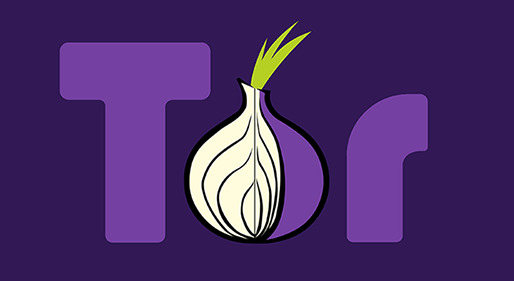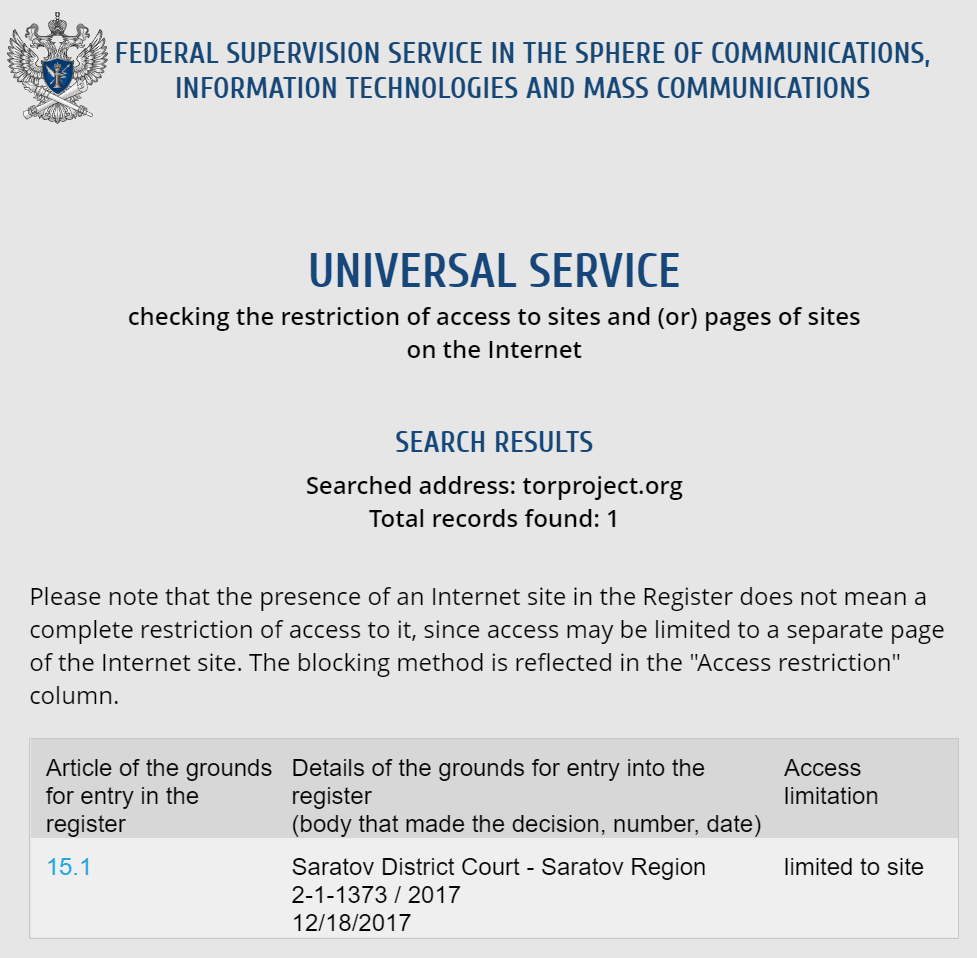 In an effort to control what its citizens can and cannot access on the internet, Russia continues to develop systems for denying access to websites and services.
In an effort to control what its citizens can and cannot access on the internet, Russia continues to develop systems for denying access to websites and services.
From copyright infringing content to terrorist propaganda (and whatever the government deems offensive in between), Russia is determined to implement restrictions on Internet users, regardless of the broader implications.
At least initially, local users confidently utilized tools including VPNs to circumvent censorship but with rising pressure from the authorities, even these have come under threat, despite the consequences.
Of course, when times got really tough there was always the robust, privacy-focused Tor network to fall back on but if the past few days are anything to go by, even this old faithful could find itself severely compromised, at least in Russia.
Russia Begins Efforts to Block Tor
Since the start of December, efforts have been underway to begin the not-insignificant task of blocking Tor. According to GlobalCheck, a project that studies local blocking and assists users to bypass restrictive measures, the TSPU (technical tools to counter threats) system has been deployed against some Tor nodes.
The same Deep Packet Inspection (DPI) system was used to throttle Twitter earlier this year and to silence the Smart Voting website developed by jailed opposition politician Aleksei Navalny.
Reports of early issues on some ISPs were reported by the Open Observatory of Network Interference (OONI) on December 1, 2021, with complaints raised on the Tor Project forum shortly after.
The blocking efforts do not currently encompass the whole of Russia but certain regions are reportedly more affected, Moscow in particular. Large ISPs showing “anomalous measurements” include Rostelecom, Beeline, Tele2 and NetByNet, according to OONI tests, but the exact scope is currently unknown.
That being said, at least one Russian official is openly supporting the blocking of Tor.
Tor is “An Absolute Evil”
As spotted by Meduza, On December 6, lawmaker Anton Gorelkin, the chairman of the State Duma’s Information Policy Committee, launched a scathing attack on Tor, describing it as a facilitator of illegal activity.
“I have never been a supporter of blocking, but in the case of Tor, I simply do not see any other options,” Gorelkin said.
“Its developers aimed to fight censorship – but in fact Tor became the backbone of the darknet infrastructure. I am convinced that the majority of Tor users use it exclusively for illegal activities: access to illegal information, purchase or sale of illegal substances, credit card numbers, stolen data, illegal services.
“In general, Tor for me (and, I think, for all sane people) is an absolute evil, which must be fought as hard and uncompromisingly as possible,” he added.
That access to “illegal information” is cited as the first alleged “evil” of Tor is perhaps telling given that the network is widely used as an anti-censorship tool, particularly in Russia where political opposition is not highly tolerated. But the network itself is not the only target on Russia’s list, as became evident this week.
Russia Blocks TorProject.org
In a post to the Tor Project forums yesterday, it was revealed that Russian telecoms regulator Roscomnadzor had warned that it was about to order the blocking of the project’s main domain.
“A notification is sent on the entry into the ‘Unified Register of Domain Names, Indexes of Pages of Sites on the Internet’ and Network Addresses Allowing to Identify Sites on the ‘Internet’ containing information, the dissemination of which in the Russian Federation is prohibited,” the warning reads, citing the torproject.org domain.
“If the hosting provider and (or) the owner of the site does not take measures to remove prohibited information and (or) restrict access to the site on the Internet, a decision will be made to include a network address in the unified register that allows the site to be identified on the Internet, containing information, the distribution of which is prohibited in the Russian Federation, and access to it will be limited.”
Shortly after on the official Tor blog, the project warned of the incoming censorship, noting that with more than 300K daily users, Russia is the country with the second-largest number of Tor users.
“As it seems this situation could quickly escalate to a country-wide Tor block, it’s urgent that we respond to this censorship! We need your help NOW to keep Russians connected to Tor!” the team wrote.
Russia didn’t wait long to act. Torproject.org has been in Russia’s blacklist since a court ruling in 2017 but late Tuesday the authorities implemented a full block, meaning that the domain is now inaccessible from the country’s main ISPs.

It seems highly unlikely that the Tor team will be caving to Russian demands so countermeasures will need to be taken.
As an interim measure, the Tor Project is directing users to its mirror site, which is hosted by the EFF. There are also calls for users to set up Tor bridges, of which many more will be needed to keep Russians online, and to install the OONI Probe app, to help gauge if and how ISPs are implementing blocking.
“International digital rights and human rights organizations must pressure Russia’s government to immediately revert this censorship,” the Tor team concludes.





